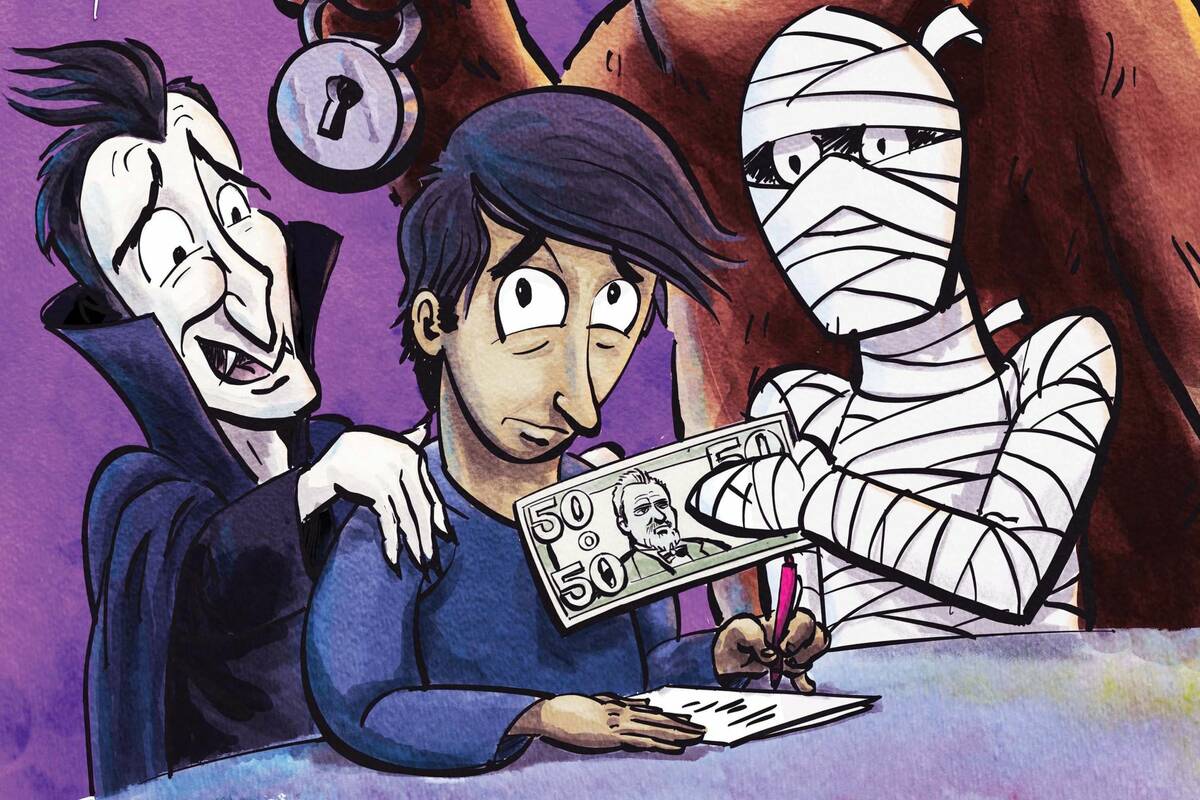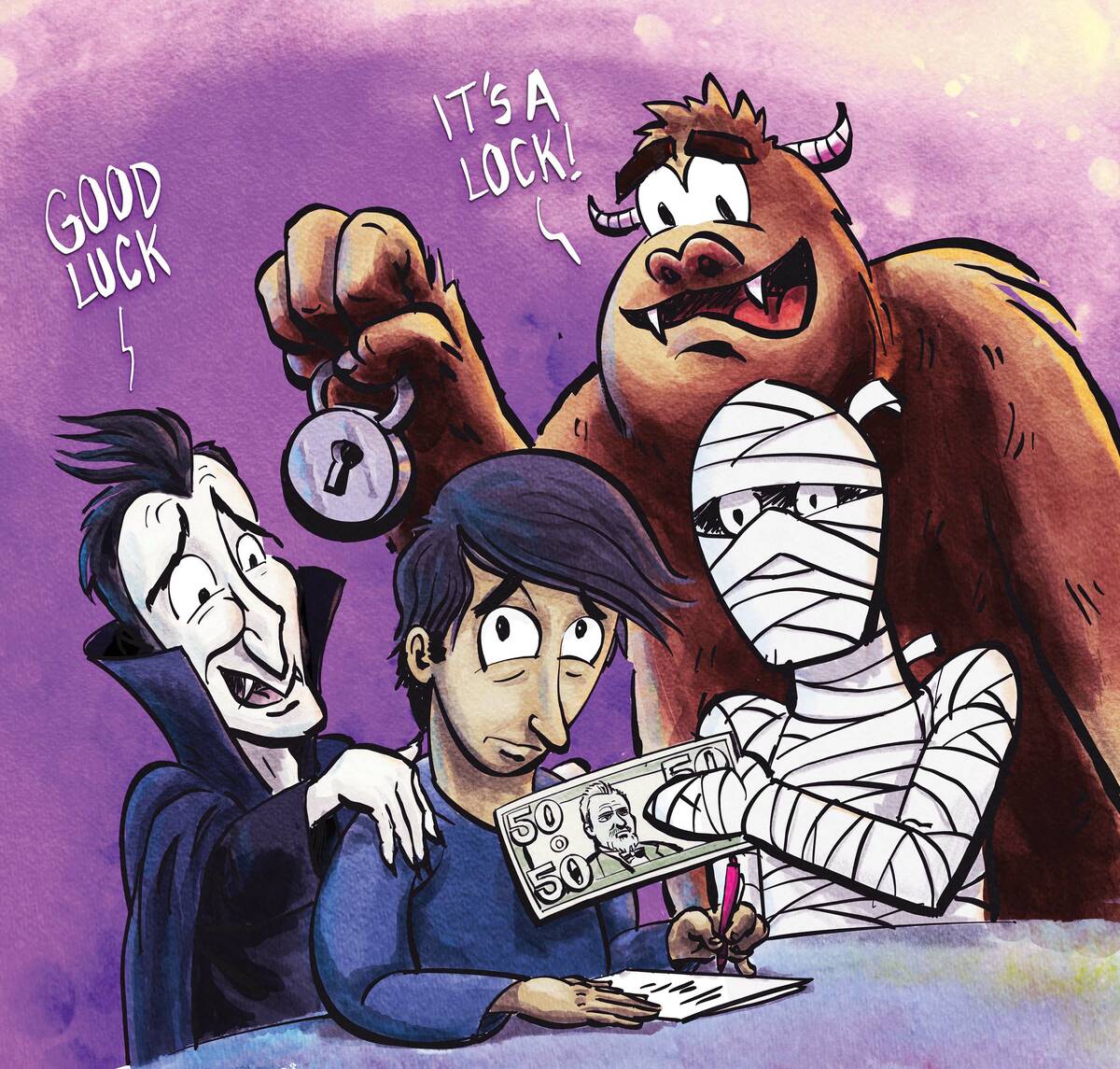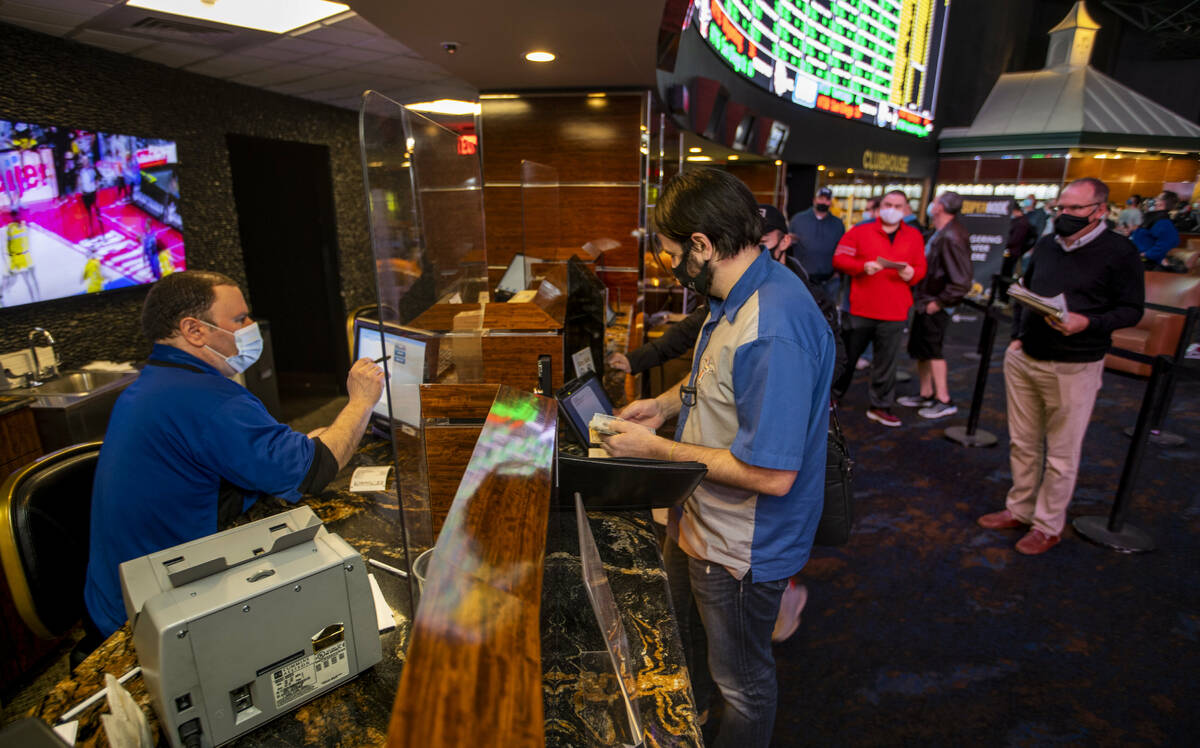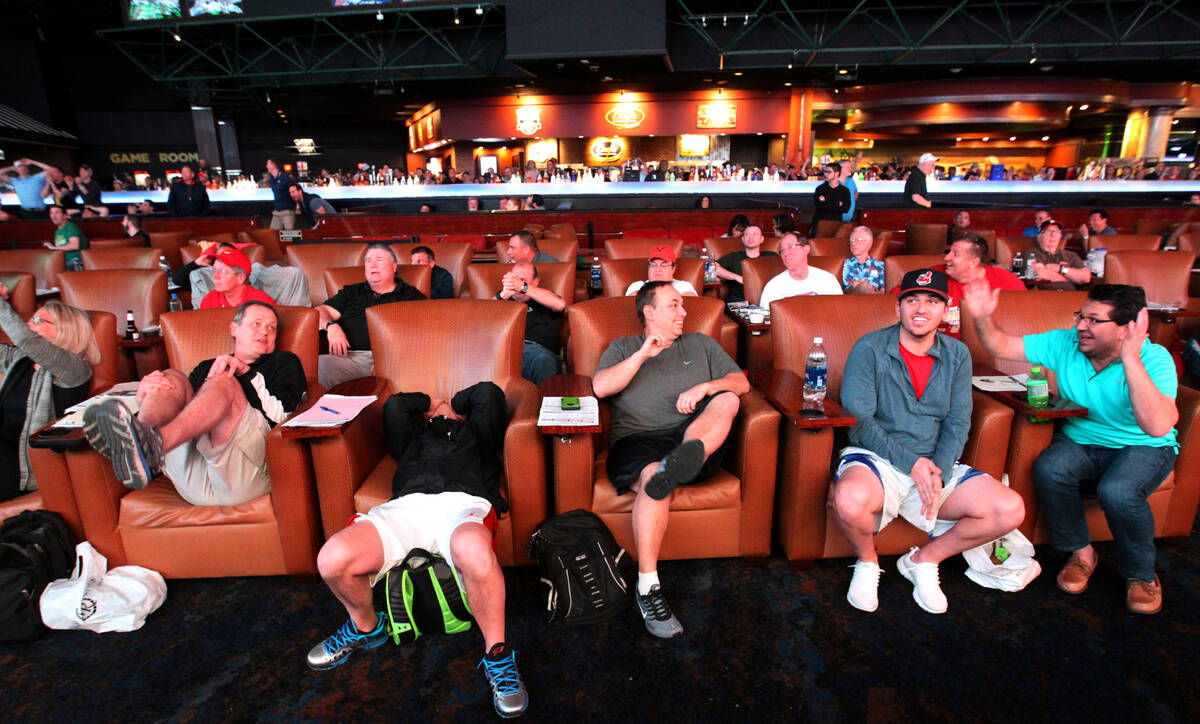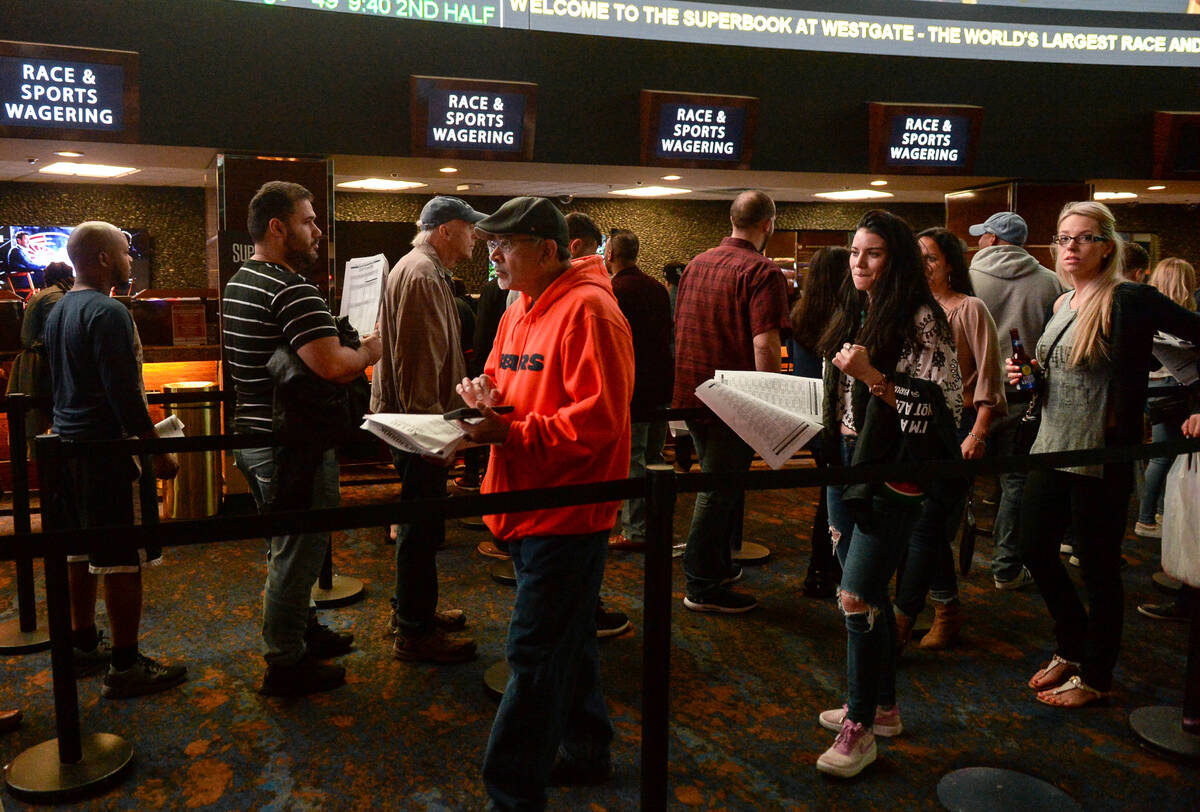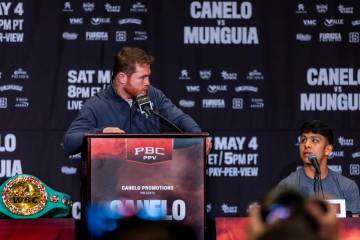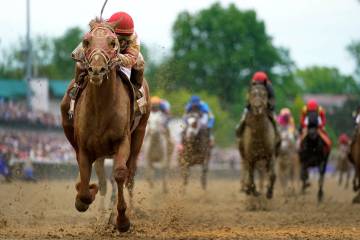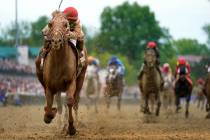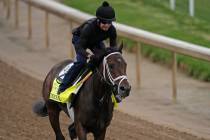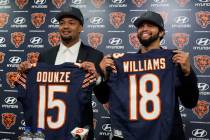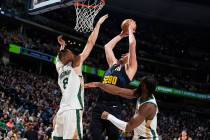Why sportsbooks won’t give you a $50 bill and other betting superstitions
“Eddie Mush was a degenerate gambler. He was also the biggest loser in the whole world. They called him mush because everything he touched turned to mush.”
The above voice-over from the film “A Bronx Tale” helps set up a scene at the racetrack where mob boss Sonny, played by Chazz Palminteri, starts prematurely celebrating with pals what appears to be an easy winner on a horse named Kryptonite.
“It’s a lock,” Sonny says with a smile. “Don’t even worry about it. We can’t lose.”
But then he sees Mush rooting for the same horse. Sonny immediately tears up his tickets and walks away in disgust without even watching the rest of the race.
“We can’t win. Mush bet Kryptonite,” Sonny says. “We’ve been mushed.”
Most gamblers know an Eddie Mush, or someone they consider to bring bad luck or be a jinx.
“If you go to a sportsbook quite often, there’s always a guy that’s around all the time, and usually the guy is just terrible,” DraftKings sportsbook director Johnny Avello said. “If you’re on the same side as him, you’re dead.”
There are countless gambling superstitions, including lucky colors, clothes and charms and unlucky numbers — 13 in Western culture and four in the Far East, where the pronunciation of the word sounds similar to the Chinese word for death.
There’s a joke that it’s bad luck to be superstitious. But professional sports bettor Cris Zeniuk and countless other gamblers believe in superstition.
“If somebody thinks something’s unlucky, I don’t ridicule that,” said Zeniuk (@lasvegascris). “If things are going good, keep whatever you’re doing the same way.”
On Halloween, here’s a look at three of the most common sports betting superstitions.
It’s a lock
With apologies to Sonny, he might have mushed himself when he declared “it’s a lock” before the race was over.
Legions of gamblers have been on the cusp of cashing a ticket when someone says something late in a game along the lines of “you can’t lose” shortly before the bet turns into a bad beat.
That’s the biggest superstition/pet peeve for many bettors, including Zeniuk, pro sports bettor Jeff Whitelaw and pro handicapper Lou Finocchiaro.
“If someone says your bet — that I no longer ever share with family or friends — is a lock or that ‘you are in,’ you get kicked out of my house for that,” said Finocchiaro (@GambLou).
Zeniuk also abhors hearing that he’s won his wager before the game is over. Even if he’s the one saying it.
“Not only if someone else tells you or congratulates you that you’ve got it in the bag. But when you’ve done it to yourself. If you’ve mentally reconciled that you’ve already won, you’ve jinxed yourself,” he said. “It’s happened to me. I’ve told myself, ‘I’ve got this in the bag.’ Then some little thing happened, and I knew for a fact that I was a loser.
“People will tell you you’re crazy, but you just know. There is some sort of a higher energy in gambling … when you just know something before it happens.”
When the mild-mannered Whitelaw worked at a Las Vegas sportsbook years ago, he was instructed how to handle the other two superstitions on our list.
“I was always told, ‘Don’t ever offer a player a $50 bill,’ and ‘don’t ever wish him good luck.’ So I never did. That doesn’t bother me. I know it’s superstition for some people,” Whitelaw said. “What bothers me is when people tell you, ‘Oh, you’ve got this one’ while the game is going on. Or ‘great pick’ in the third quarter when you’re up 21 points.
“I just hate when people talk about games while they’re still going on.”
Good luck with that
For many old-school gamblers, having a sportsbook ticket writer wish them a seemingly innocuous “good luck” is considered a curse.
“Nobody wants to hear ‘good luck,’” said veteran Las Vegas oddsmaker Dave Sharapan (@SportsbkConsig). “The grinders and the people that are betting every day, they think you’re putting the maloik on them or giving them the evil eye.”
Maloik is short for malocchio, the Italian word for evil eye.
Longtime bookmaker Nick Bogdanovich recalled an incident in the late 1980s when his teller at Binion’s Horseshoe uttered a polite “good luck, sir” to legendary Las Vegas linemaker and bettor Herb Lambeck, aka “Herbie Hoops.”
“He made me void the ticket because he thought it was voodoo or bad luck,” Bogdanovich said. “Here’s one of the all-time greats of the industry. The girl said ‘good luck,’ and he voided it.
“I don’t know why certain gamblers find that offensive, but they do. If someone tells me ‘good luck,’ I say ‘thanks.’”
Legendary Las Vegas oddsmaker Michael “Roxy” Roxborough said the well-wishes eventually drove Lambeck, his mentor, away from the books.
“‘Good luck’ was the kiss of death for Herbie. No reason. Just that old-timers felt it jinxed the bet,” said Roxborough (@RoxyLasVegas). “Once the casinos got in the sports betting business, it was standard for ticket writers to say ‘good luck’ after a wager, so Herbie used runners in the casino sportsbooks.”
Longtime oddsmakers Jimmy Vaccaro and Vinny Magliulo trained their ticket writers never to tell bettors “good luck.”
“This started 40 years ago when we were dealing with people who had never been in a sportsbook before,” Vaccaro said. “If the clerk says ‘good luck’ to you, all hell broke loose. You had to eat the ticket and do it all over again.
“They don’t want to hear ‘good luck.’ They just want to cash their ticket in three hours. To them, it doesn’t have to be luck that causes them to be a winner. It was intense working and studying and getting a good number. The worst thing that could happen was a fluke play. This wacko told me ‘good luck,’ and now a guy hits a 57-yard field goal in a blizzard to beat me. Now where’d the good luck go?”
Magliulo said it comes down to a matter of luck vs. skill.
“It’s not about luck. It’s about skill to bettors,” he said. “You want to provide good customer service, but it’s best to give the ticket and say ‘have a good day’ or ‘enjoy the game,’ because to superstitious bettors, it has nothing to do with luck. They know who’s going to win. They don’t need any luck. It’s all skill.”
Fifty ways to lose your money
While the “good luck” superstition isn’t as prevalent now as it was in the past, the $50 bill is still widely considered to be bad luck by gamblers.
“No $50 bills. Ever,” Finocchiaro said. “That is an old Sicilian thing. From way before me.”
Magliulo said he instructed his tellers at Caesars Palace and other books never to give a 50 in change, and he didn’t put any 50s in their starting banks, either.
“A $50 bill is deadly,” he said. “True bettors don’t bet with them and don’t want them in their payouts. It’s just one of the old-school taboos. If somebody bet with it, you can tell they’re probably not a professional.”
There are several intriguing origin stories of how the $50 bill became a symbol of bad luck. One is that the bill bears the image of former president Ulysses S. Grant, who went bankrupt before he died.
Another is that the mob would reportedly leave $50 bills in the jacket pockets of murder victims. Legend has it that Las Vegas Flamingo founder Bugsy Siegel had only three $50 bills in his pockets when he was murdered in Beverly Hills, California, in 1947.
Other possible reasons for avoiding the $50 bill are that they’re a common target of counterfeiters and can be mistaken for $20 and $5 bills.
“There are some historical reasons the $50 bill is unloved, but gamblers don’t need a reason. A jinx is a jinx,” Roxborough said. “And this one has been handed down through generations. I still never have one in my pocket, but I will touch one. That’s called progress.”
MGM Resorts director of trading Jeff Stoneback said there have been many instances over the years in which bettors have been upset at his ticket writers for giving them a Grant.
“They think we should know it’s bad luck and we shouldn’t be doing that,” he said.
Vaccaro has been quite familiar with bettors’ feelings about the cursed $50 bill since the 1970s. But, like most rational people, he wouldn’t turn down too many of them.
“I guess if you’re up against the wall, you’d like to have 200 of them,” he said.
Contact reporter Todd Dewey at tdewey@reviewjournal.com. Follow @tdewey33 on Twitter.



